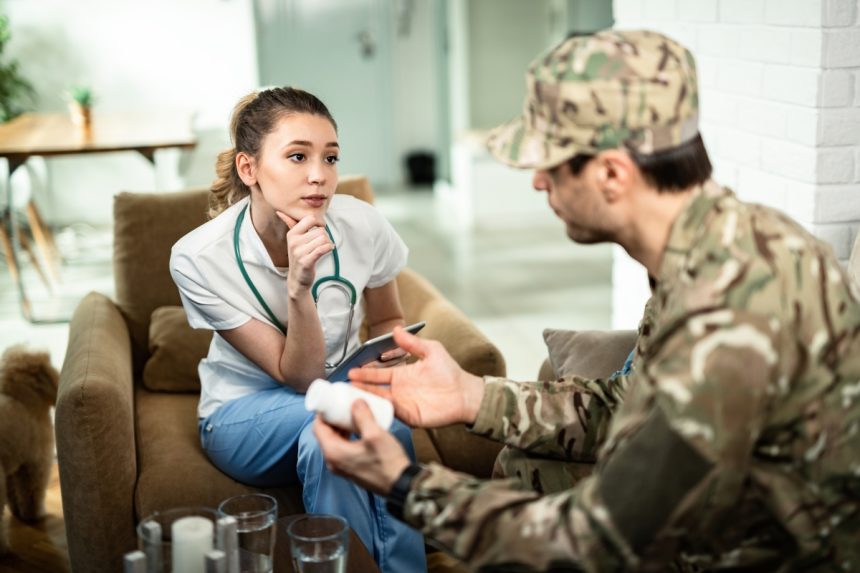Veterans deal with various challenges as they work towards a new way of life, often requiring comprehensive support to ensure their well-being. The journey toward recovery and reintegration can be complex, highlighting the need for dedicated programs that enhance their overall health. Through veteran organizations offering targeted efforts, veterans can benefit from the initiatives that strive to create pathways for veterans to lead fulfilling lives while addressing the unique difficulties they encounter post-service.
1. Counseling and Therapy.
Counseling helps veterans and their families navigate changes in routine, psychological, and emotional impacts of combat trauma. Tailored therapy provides room for veterans to discuss their specific concerns with a mental health professional, ensuring a conducive environment for emotional release and support. For example, group sessions empower veterans to connect with peers for inspiration and freedom of association.
Additionally, cognitivebehavioral therapy equips veterans with the practical skills to manage mental issues. Partnering with a reputable Veterans Service Organization (VSO) can enhance access to these valuable resources, primarily through initiatives like the CFC, which raises funds for vital veteran support programs to ensure comprehensive care and support for all veterans in need.
2. Disability Assistance.
War injuries can lead to various health challenges for veterans, impacting their mobility and overall health. Disability assistance is essential for addressing these challenges, encompassing a range of services designed to support veterans in both their health and daily activities. For example, organizations can facilitate and guide veterans in accessing aided transportation and specially adapted vehicles, such as wheelchair-accessible vans, to help them quickly navigate their surroundings.
Also, reputable organizations like the Wounded Warrior Family Support may offer vehicle grants to qualified individuals to enhance their mobility. Such support can significantly reduce the psychological and physical distress that may arise when such resources are unavailable.
Further facilitating access to devices and technology tailored for veterans with physical limitations restores their functionality while boosting their independence. Such programs assist veterans in adapting to their daily lives, reducing the risk of injuries for those with physical disabilities while increasing accessibility to healthcare and psychological support. Such comprehensive assistance is crucial in enhancing veterans’ overall well-being and quality of life.
3. Substance Abuse Recovery Support.
War heroes are likely to indulge in substance abuse due to trauma, difficulty in adapting, or a lack of better coping mechanisms. These issues can lead to reliance on substances as a way to escape and manage emotional pain. However, the community shouldgive back to their protectors by ensuring they have access to effective treatment and recovery resources.
Reputable VSOs provide detoxification programs that offer safe and supervised detox services, laying a robust foundation for recovery. Rehabilitation may involve personalized therapy, medication management, and mentoring, helping veterans maintain sobriety and reintegrate into society.
On the other hand, prevention interventions help raise awareness about excessive alcohol and provide strategies to prevent indulgence. While these treatment options can be expensive, Veteran donations through organizations like Wounded Warriors Family Support are crucial for funding these services, ensuring veterans receive personalized support to reclaim their lives.
4. Facilitating Therapeutic Outdoor Activities.
Outdoor engagements create a familiar sensory environment for rehabilitation programs that is crucial for reducing stress, improving mood, and boosting the immune system. Thishelps veterans regain confidence and enhance physical function. Outdoor therapy utilizes the healing power of nature through sight, hearing, smell, and touch, allowing veterans to relax and reduce stress.
Adventure therapy provides a feeling of accomplishment while improving fitness, strength, and flexibility. Participating in these activities fosters community and belonging, reinforcing essential support systems for acceptance and emotional healing.
5. Professional and Peer Mentoring.
Mentoring is a foundational strategy in facilitating the motivation and resilience of wounded veterans by providing essential emotional support, guidance, and encouragement. These programs typically start by pairing veterans with mentors who can offer relevant insights for navigating their unique challenges. Through structured meetings, mentors and mentees create a conducive environment to explore expectations, barriers, benefits, and milestones.
Mentors provide support, practical advice, and guidance in various areas, including: career development, education, and relationships. They serve as positive role models, inspiring veterans to overcome obstacles while connecting them with valuable resources.
Such a relationship fosters accountability and motivation, reducing feelings of isolation, depression, and anxiety. Successful mentoring thrives on clear communication, goal-setting, mutual respect, and flexibility, ultimately helping veterans succeed in their post-service lives.
In conclusion, VSO programs for wounded war heroes are crucial for enhancing wellness and dignity. By partnering with a respected non-profit, like Wounded Warrior Family Support, veterans receive the support, guidance, and resources they need to overcome their challenges effectively. Thisaids inhonoring their sacrifices and promotinga healthier, more fulfilling way of life.
Lynn Martelli is an editor at Readability. She received her MFA in Creative Writing from Antioch University and has worked as an editor for over 10 years. Lynn has edited a wide variety of books, including fiction, non-fiction, memoirs, and more. In her free time, Lynn enjoys reading, writing, and spending time with her family and friends.















